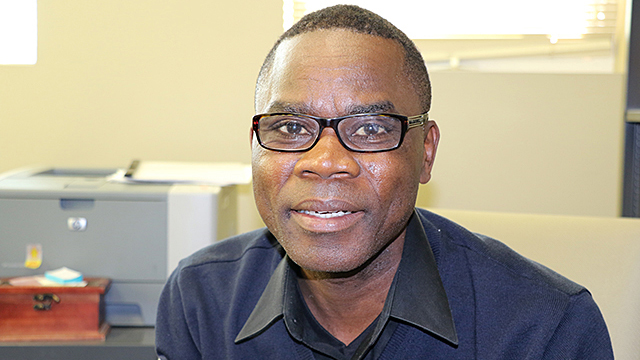
Professor Paulin Mulatris.
"Migrants from other Canadian provinces and other countries have settled in these areas creating a significant structural demographic change. In these movements, the reception centers have played an important role in the settlement process." Professor Paulin Mulatris underlined.
The professor recently received a $146,000 grant from Citizenship and Immigration Canada to analyze the services offered to Francophones in the four western provinces and the three territories as well.
"Twelve years after its creation, the reception and integration services, indispensable lever to these demographic movements, have never had a general or comparative study to measure its real impact on newcomers and the francophone communities welcoming the newcomers. The aim of this study is to get feedback that will improve the existing services and adjust them to the actual needs of newcomers." The principal researcher explained.
For this study, the latter will be assisted by four co-researchers: from Manitoba (Lori Wilkison, the university of Manitoba and Mamadou Ka, the University of Saint-Boniface), from Saskatchewan (Laurie Carlson Berg, University of Regina) and from British Columbia( Marianne Jacquet, Simon Fraser University).
By March 31st of 2016, the team of researchers intends to interview about 800 people for the first phase of the project. These telephone interviews will be done with the collaboration of Population Research Lab of the University of Alberta. The people to be interviewed will be from a random sample from the data base of CIC. For the purpose of this research, we requested to have access to the data base of the past ten years." Paulin Mulatris said.
For the next step, discussion groups will be created in every region. Two discussion groups per province and one per territory will be put in place." Our objective is to have feedback from people who have used francophone welcome centers, but also from those Francophones who preferred these services in English and enquire from them why they made these choices," Paulin Mulatris said.
The latter hopes that with this study he can give recommendations that will bring significant adjustments to the services welcome centers offer to adequately respond to the actual needs of their customers of today.